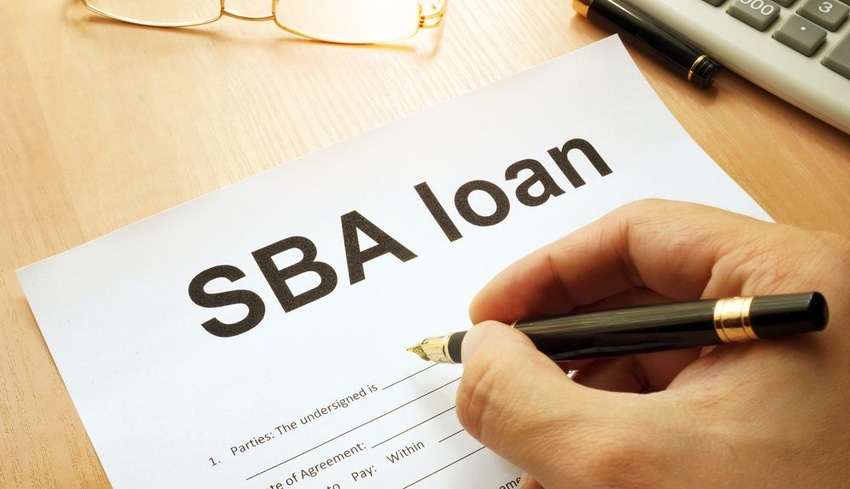When self-storage investor Jim Hoffman decided to acquire a self-storage facility in Summerville, S.C., he sought financing through the Small Business Administration. Learn more about this type of lending and why many investors are choosing it.
April 7, 2018

Jim Hoffman launched Hoffman Investment Group in 2015 after an extensive career in commercial real estate. His goal is to acquire and own five to 10 self-storage facilities in the Southeast with his wife and partner, Janine.
Hoffman opened his first facility in Summerville, S.C., in 2016. He opened his second property, Patriot Self Storage, in North Charleston, S.C., in April 2017. To finance both projects, he used loan programs offered by the Small Business Administration. However, the first transaction, using the 504 program, involved a long and confusing process; while the second, using the 7(a) program, went much more smoothly, Hoffman reports.
Patriot is a 35,000-square-foot facility with 220 units and some boat/RV-storage spaces. Hoffman was thrilled when he discovered the site, believing this acquisition was the next logical step for his portfolio. “I found a facility that needed some love but had a lot of growth potential. I didn’t want to walk away,” he says. Finding a loan program that offers competitive rates, flexibility and longer terms can be challenging, but SBA loans are allowing investors like Hoffman to realize their dreams.
Program Benefits
Over the past few years, SBA programs have gained momentum in the self-storage industry because of their cash-flow-driven lending model. The SBA 7(a) program allowed Hoffman to power through his second loan process and get funding for a property that might not have qualified for a loan from a traditional lender.
“Having a lender who understands both self-storage and the SBA was monumental in the success of this deal,” Hoffman says. “Because of their experience, they saved me tens of thousands of dollars on the purchase price because they could identify issues with the facility that I did not catch. This may not have happened with another bank.”
There are many benefits to using an SBA 7(a) loan:
Down payment: Most conventional bank loans require a 25 percent to 35 percent down payment. Based on a cash-flow analysis, SBA loans require a smaller down payment. This allows a borrower—particularly a new owner—to get started with less money out of pocket.
Loan terms: SBA 7(a) loans have a 25-year fully amortizing term, whereas many conventional bank loans offer five- to seven-year terms.
Working capital: For a potential self-storage owner going through a period of increasing occupancy, working capital is essential. Fortunately, it can be rolled into an SBA 7(a) loan. This reserve can help bridge the financial gap until breakeven occupancy and stabilization is achieved.
Financial covenants: SBA 7(a) loans don’t have restrictive financial covenants you may find in conventional loans, such as loan-to-value or DSCR (debt-service coverage ratio) covenants.
Preferred lenders: Working with an SBA preferred lender should make the overall loan process less time-consuming. Typically, the lender is what makes the difference in whether a transaction will be difficult or smooth.
Ultimately, the SBA 7(a) loan program provides a better opportunity for the borrower to be the sole owner of his business. Aside from his relationship with the lender, he may not need additional partners. Essentially, 7(a) loans help the business owner stay independent without having to engage equity partners.
A Better Option
As self-storage continues to evolve, facilities are becoming more advanced. A facility that’s mismanaged or lacks modern amenities may present a great investment opportunity—if you can find a way to finance it. An SBA loan may be the answer.
Many entrepreneurs like Hoffman see self-storage as a low-risk, high-return investment. “Self-storage is making its way around the world,” he says. “Although it will slow down at some point, there will always be a need as more people are living in smaller spaces and fewer homes are being purchased.”
From ground-up construction to conversions and acquisitions, the SBA 7(a) loan program is an excellent option for self-storage borrowers. With flexibility and cash-flow-driven lending, borrowers can feel secure in their financial decisions.
Terry Campbell is general manager for the self-storage lending division of Live Oak Bank, which offers financing for facility acquisitions, construction, expansion, refinancing or renovation. He has more than 23 years of self-storage industry experience as a supplier as well as ownership in self-storage projects. For more information, call 910.202.6933; e-mail [email protected]; visit www.liveoakbank.com/self-storage.
About the Author(s)
You May Also Like





